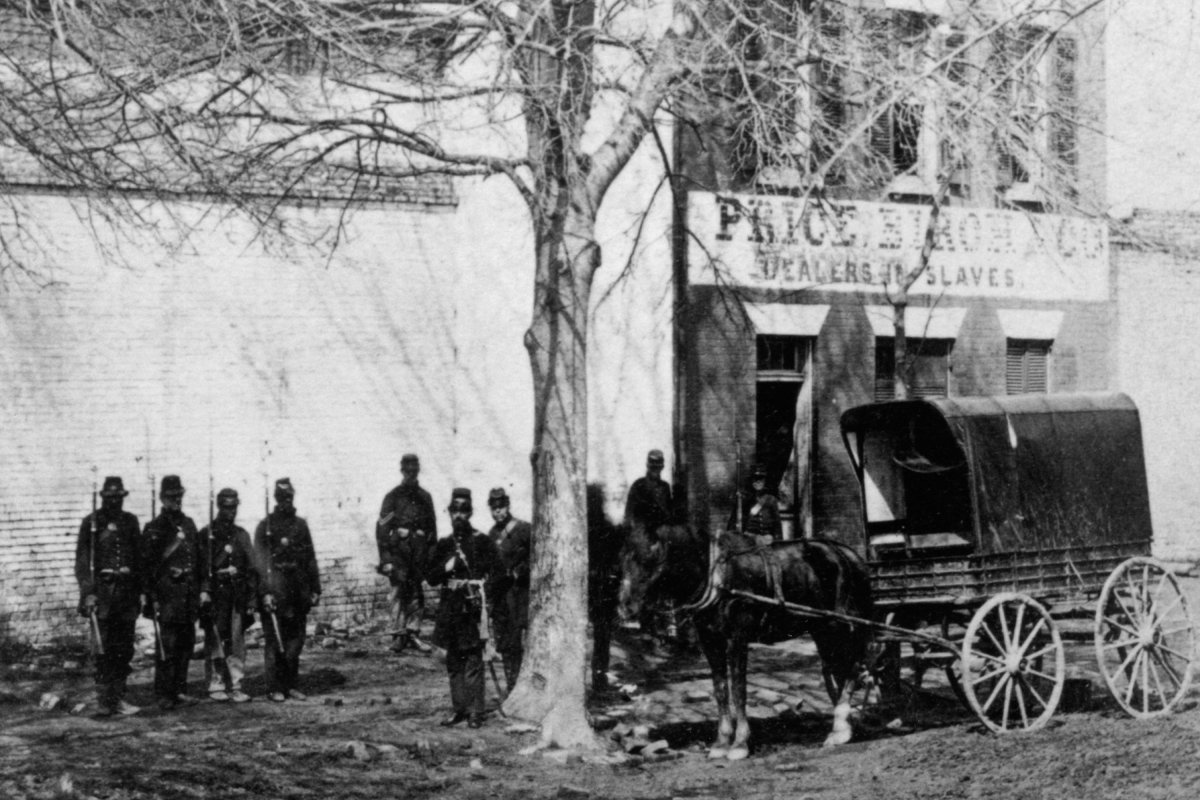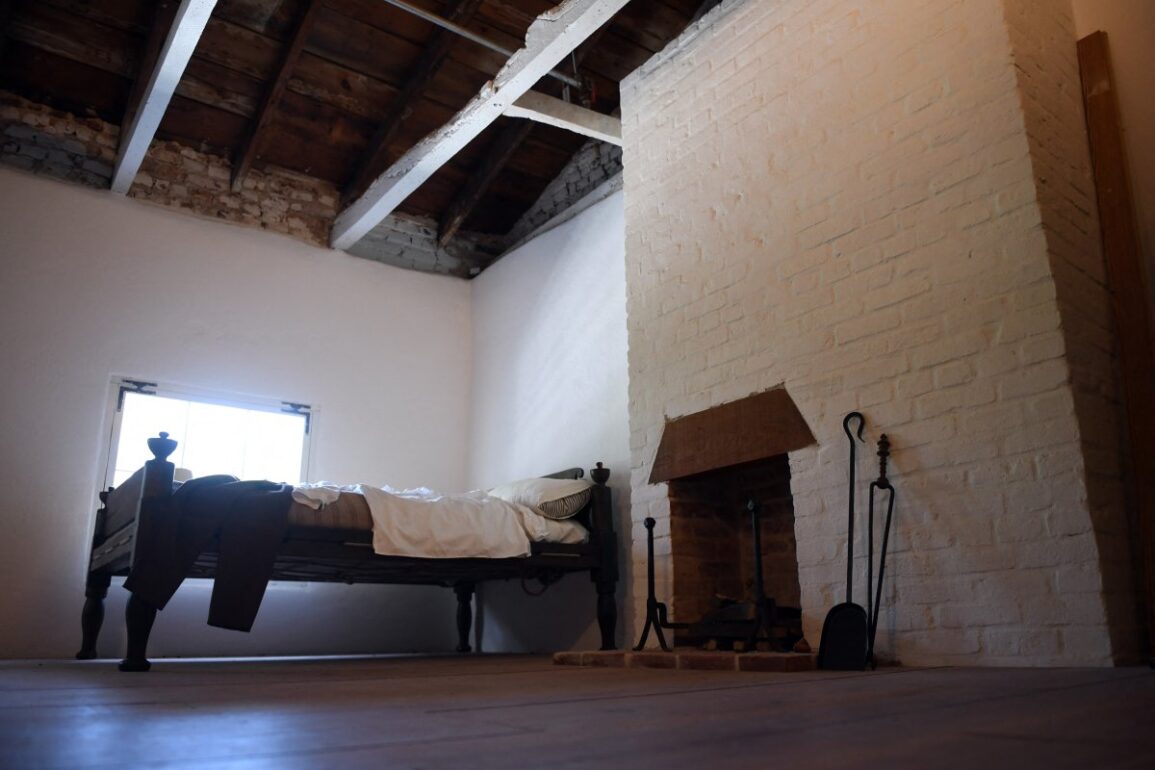While the United States has never implemented a widespread slavery reparations program, the tide might be turning as several states and cities push proposals that would benefit descendants of slaves and Black Americans at large.
The initiatives so far proposed range from direct cash payments to grants, formal apologies and programs with race-specific eligibility.
But this month, three states saw updates to their reparation proposals: California, Illinois and North Carolina.
“More states and cities have considered reparations as a potential solution to the vast income and wealth inequality that accompanies the racial divide,” Alex Beene, a financial literacy instructor at the University of Tennessee at Martin, told Newsweek. “While there have certainly been gains in the labor market and the salaries it provides, the wealth gap in terms of assets remains significant in many parts of the country, and governments are looking to fill in those gaps.”
California
In California, the state’s Legislative Black Caucus has pushed several bills with policies suggested by the California Reparations Task Force.
One piece of legislation, AB 2862, which would have given Black Americans and slave descendants priority in professional license applications, does not appear to have gained traction. But there are still plenty of other ideas on California’s agenda.
SB 1403 and SB 1331 are waiting in committee and set for their first hearing.
Senate Bill 1403 would create a ‘California American Freedmen Affairs Agency’ designed to help the Reparations Task Force get their recommendations implemented.

A bed in the slaves quarters is seen near the Arlington House, the historic mansion once inhabited by Robert E. Lee who led the Confederate Army during the Civil War at Arlington Cemetery, on August 24, 2021, in Arlington, Virginia. Several states have proposed reparations programs for Black Americans.
OLIVIER DOULIERY/AFP via Getty Images
Meanwhile, Senate Bill 1331 would create a fund for reparations and reparative justice, which could then finance state reparations moving forward.
Another Senate bill, 1348, was recommended to be passed by the Committee on Higher Education and then referred to the Committee on Appropriations. If that bill makes it through, colleges could be designated as “Black-Serving Institutions” if they have 10 percent or more Black students as a portion of their student body and also meet certain program requirements.
Some of the initiatives come at the city level, like in Berkeley, California, where officials recommended financial payments to students based on race.
Illinois and North Carolina
Another city that’s gotten on board with its own reparations task force is Chicago.
In an executive order from June of this year, Chicago Mayor Brandon Johnson apologized for the “historical wrongs committed against Black Chicagoans and their ancestors who have and continue to bear injustices.”
Johnson also created a Black Reparations task force to pursue reparations for Black Chicago residents.
“Today’s Executive Order is not just a public declaration; it is a pledge to shape the future of our city by confronting the legacy of inequity that has plagued Chicago for far too long,” Johnson said in a statement at the time.
“In partnership with the Chicago City Council Black Caucus and our dedicated allies, we are continuing to build on the bedrock of my administration to move forward in reconciliation through targeted investments aimed at rectifying decades of deliberate disinvestment in Black neighborhoods and communities.”
Over in Asheville, North Carolina, the city saw 39 reparations recommendations pass, but the city will see a six-month extension for community engagement before implementing the reparations.
“We’re asking for six months to implement the things that we feel are necessary in order to see reparations truly realized through this process,” Commission Chair Dewana Little said, as reported by local publication Mountain Xpress. “And no, we have not had the time and capacity to focus on the policies and procedures that maintain this perpetual system of harm to Black people.”
Kevin Thompson, a finance expert and the founder of 9i Capital Group, said states are increasingly trying to find ways to wipe away the “historical stain” on America via reparations.
“As we know, systematic issues such as redlining and over-policing of black neighborhoods has incarcerated more Black and brown individuals,” Thompson told Newsweek.
“Dr. King once stated, ‘We give poor immigrants land and money while we leave the descendants of slaves to pull themselves up by their bootstraps.’ He then goes on to say, it is difficult to do that when you have no boots.”
While large-scale reparations have yet to be implemented, Thompson said this mostly comes down to legal and constitutional challenges, which could prevent many of the state’s proposals from becoming reality.
“The 14th Amendment’s Equal Protection Clause presents a significant barrier, as courts often strike down race-based policies on these grounds,” Thompson said. “This makes it difficult to design a reparations program that would withstand judicial scrutiny.”
Many take issue with how such a program would be implemented federally as well, as a fair reparations rule would not be based on skin color, but instead on genealogy, Thompson said.
“Others would not see this as a fair method of redistribution, especially given the fact many of the individuals paying for this had nothing to do with the event in question,” Thompson said.
Pacific Legal Foundation attorney Andrew Quinio, who is also the director of the foundation’s Reparations Task Force, said many states and cities are considering reparations because it’s “politically popular” in the wake of the Black Lives Matter movement.
“There hasn’t been a widespread reparations program to date because the American people support a colorblind country that doesn’t keep us stranded in the past,” Quinio told Newsweek.
“We are also a far more diverse country with individuals who don’t have any roots in the history that reparations advocates are trying to address, and thus no connection to either side of the grievances that are made.”




Price Birch & Co., dealers in slaves storefront in Alexandria, Virginia, during the U.S. Civil War circa 1861. Several states have introduced legislation for reparations for descendants of slaves.
Archive Photos/Getty Images
Uncommon Knowledge
Newsweek is committed to challenging conventional wisdom and finding connections in the search for common ground.
Newsweek is committed to challenging conventional wisdom and finding connections in the search for common ground.



